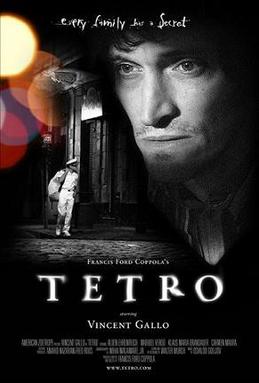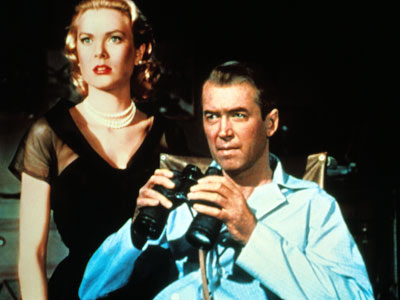
Francis Ford Coppola's second film in 13 years - Tetro - has seemingly appeared with more of a whimper rather than a bang, which is perhaps slightly cruel considering the cinematic maestro's standing as one of the greatest directors of all time.
Being his first original screenplay since the 1974 Oscar-nominated classic The Conversation, Tetro tells the tale of Bennie (Alden Ehrenreich) as he travels to Buenos Aires to find his long-missing older brother (Vincent Gallo), a once-promising writer who is now a remnant of his former self. Bennie's discovery of his brother's near-finished play might hold the answer to understanding their shared past and renewing their bond.
From the opening credits it was clear Coppola was aiming for a classic silver-screen era aura to Tetro. Filming in black & white gave the film a vividly atmospheric mood to the beautifully chic surroundings of Buenos Aires. Opting to show the revelatory flashbacks in standard colour added an extra layer of depth to the whole production - dare I say it was almost Hitchcockian in its approach.
With references to vintage movies such as The Red Shoes and On The Waterfront, Tetro almost felt like a celebration of Coppola discovering his love and passion for cinema once again, which was both a beautiful and assuring thought.
Though Coppola has hinted some of the events are based on his own family's life, the characters themselves painted quite a fascinating picture. Vincent Gallo was excellent as the film's title character. A deeply troubled and conflicting soul, struggling to fight with his personal demons while not being able to accept the past for what it was thus creating a crippling inability to properly move on with his life.
While the audience were given a 'stand-offish' relationship to Tetro, his younger brother Bennie is where the main focus truly lies. Though the main themes of the film are based primarily around family, Bennie's journey acts more as a 'coming-of-age' drama, as he turns 18, discovering traits he never knew about himself while embracing other aspects of his life he may have never had the chance to until now. Alden Ehrenreich's stand-out performance certainly makes him a star to watch out for in future.
The supporting appearances from accomplished Spanish actress', Maribel Verdu (Pan's Labyrinth) as Tetro's feisty yet lovingly tender wife, Miranda and frequent Almodovar collaborator Carmen Maura as his one-time mentor/critic simply known as "Alone" only continued to raise the quality of a film with already high production values.
Regrettably however, it was not perfect. At times it felt as though Coppola chose to show-off his undeniably brilliant skills as one of the world's best directors, rather than simply just tell a brilliant story, using every film-making technique under the sun. It was a bit like watching a Steve Vai concert, yes we know he can play, but where the hell is the actual song?
Furthermore it was far too long than it needed to be. Yes two hours is the standard for effects laden blockbusters these days but for a film this intimate, this carefully crafted, it perhaps could have benefited from leaving the self-indulgent w**kery for another time.
Final Thoughts
The flaws are evident for all to see, but Tetro is still perhaps one of Francis Ford Coppola's best films in years. Not necessarily the return to form many fans would have hoped but certainly a step in the right direction. Underneath all the technical show-boating is a touching, personal story of family values, secrets and revelations which, if you haven't already fell asleep by its ending, will surely leave the audience pondering long after the curtain closes.
3/5
See This If You Liked...
The Godfather Trilogy, The Red Shoes, On The Waterfront.
Tetro is in selected cinemas across the UK now. Belfast visitors can see the film in the Queen's Film Theatre from Friday.












